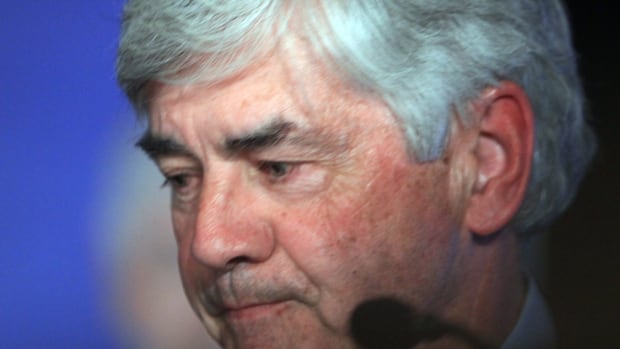Former Foreign Affairs Minister Lawrence Cannon has received conflicting advice on whether to issue emergency passports to Canadians in exile in Sudan, but Canada says Abusufian Abdelrazik is a national security threat. He said he was disturbed by the claims made by the Security Intelligence Service.
Abdelrazik is currently suing the federal government and Cannon for millions of dollars, accusing them of colluding in his detention and alleged torture in Sudan.
He claims the Canadian government left him in Sudan for six years until a federal court ruled in June 2009 that Ottawa had violated his constitutional rights and ordered him to return home.
Cannon, who is testifying in the Ottawa courtroom where Abdelrazik’s case is being heard, spoke Tuesday afternoon about his decision to refuse to provide Abdelrazik with emergency travel documents just months before the federal court ruling. Time was also questioned.
“I have been informed of the reasons why Mr. Abdelrazik should return to Canada,” Cannon said in response to questions from government lawyer David Aaron.
“And on the other hand, I was informed by CSIS why I shouldn’t do that, because he posed a threat to national security.”
Mr. Abdelrazik, who was born in Sudan and became a Canadian citizen in 1995, was arrested in Sudan in 2003 while traveling and was questioned by CSIS officials while in custody over suspicions of links to extremists. The Montreal-based father denies any involvement in the attack and has not been charged.
According to an agreed statement of facts in the case, Canadian authorities said several times that if Abdelrazik was able to secure a flight to Canada, the federal government would issue him with an emergency passport.
That proved difficult because Abdelrazik was on the UN’s list of al-Qaeda associates.. The list prevents member states from offering him transit or entry. He was also on the US no-fly list, meaning commercial airlines would not be able to take him to Canada.
In March 2009, Abdelrazik was able to secure a seat on a flight back to Canada the following month and applied for an emergency travel document to return home.
According to an agreed statement of facts, his hopes were dashed when Cannon refused to issue him an emergency passport on April 3, 2009.
Cannon says CSIS intelligence agency was ‘central’ to his decision
Emails already shown in court said Foreign Office officials felt the minister had “ignored” their advice.
Mr Cannon said it was common for him to receive conflicting advice as a minister.
“I looked at as much information as I could,” he said.
Cannon said CSIS is concerned about Abdelrazik’s past international travel and his acquaintances, including Ahmed Ressam, known as the “Millennium Bomber” who foiled the Los Angeles International Airport attack.
He said that concern was “central” to his decision-making.
“Those were the most common problems for me,” Cannon testified.
“I didn’t want to put Canadians at risk, and I didn’t want Mr. Abdelrazik to come back to Canada and threaten the safety and livelihoods of many Canadians.”
The court proceedings, now in their eighth week, have heard evidence from several witnesses that CSIS’s goal was to keep Abdelrazik in custody in Sudan.
Federal lawyers argued that the government did not ask Sudan to continue detaining him, mistreating him or creating any risk that this would occur.
The RCMP acquitted Abdelrazik in 2007, publicly confirming that they had no “substantive information” indicating that Abdelrazik had engaged in criminal activity.
Mr. Abdelrazik first filed the complaint against Ottawa and Cannon in 2009. After long delays over the use of classified documents, the case is finally being heard in federal court.

